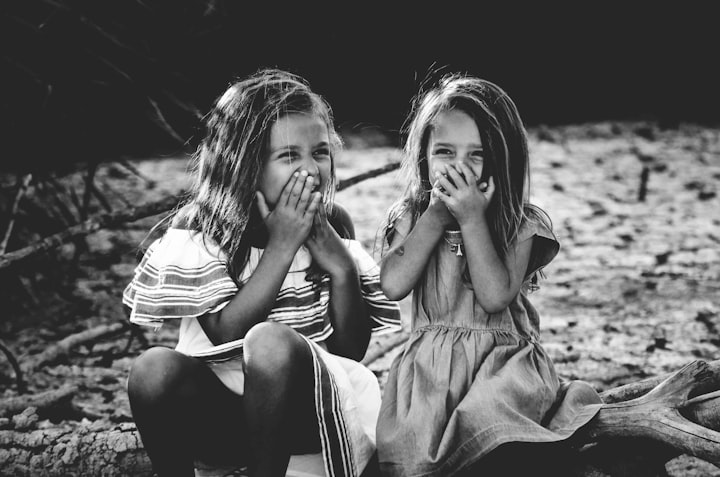
Peer bullying is a form of aggressive behavior that involves the repeated mistreatment of a child by one or more peers. It can take many forms, including physical violence, verbal abuse, social exclusion, and cyberbullying. Peer bullying can have serious negative effects on the well-being of both the victim and the perpetrator. Peer bullying during childhood can have significant and long-lasting effects on individuals as they grow into adulthood. Research has shown that children who experience bullying are more likely to suffer from anxiety, depression, low self-esteem, and other mental health issues, both during childhood and later in life.
In addition to the psychological effects, childhood bullying can also lead to physical health problems in adulthood. Studies have found that individuals who were bullied as children are at a higher risk for developing chronic health conditions such as cardiovascular disease, diabetes, and obesity.
Bullying can also affect social relationships and career success in adulthood. Adults who were bullied as children may struggle with forming healthy relationships, both personally and professionally. They may also have difficulties with trust and self-confidence, which can impact their ability to succeed in their chosen careers.
Furthermore, individuals who were bullies during childhood may also face negative consequences in adulthood. They may have difficulties with anger management, impulse control, and conflict resolution, which can make it challenging for them to form positive relationships and succeed in their careers.
Overall, the effects of childhood bullying can be far-reaching and long-lasting, impacting an individual's mental, physical, and social well-being throughout their entire life. It's essential to address bullying when it occurs and provide support to those who have experienced it to prevent these negative consequences.
The relationships between children are important for their social and emotional development. Through interacting with peers, children learn important social skills such as communication, cooperation, empathy, and conflict resolution. These skills are essential for building healthy relationships throughout their lives.
Unfortunately, peer bullying is a common issue that many children face. It is a form of aggressive behavior that can have negative effects on the well-being of both the victim and the perpetrator. Children who are bullied may experience emotional distress, physical harm, and academic difficulties. Bullying can also lead to long-term psychological effects such as anxiety and depression.
Solutions to peer bullying require a multi-faceted approach that involves parents, teachers, and other adults in the child's life. Some strategies that have been effective in addressing peer bullying include:
1. Creating a safe and supportive school environment that promotes positive behaviors and values.
2. Providing social-emotional learning programs that teach children empathy, conflict resolution, and problem-solving skills.
3. Encouraging bystander intervention, where peers who witness bullying step in and help the victim.
4. Encouraging parents to communicate with their children about bullying, and to teach them appropriate behaviors for interacting with others.
5. Providing counseling and support for children who have been bullied, as well as for those who have engaged in bullying behavior.
6. Enforcing consequences for bullying behavior, such as detention or suspension.
By taking a proactive approach to addressing peer bullying, we can help create a safe and positive environment for all children to thrive in.
There are many scientists and researchers who have studied the subject of peer bullying. Some notable researchers in the field include:
Dan Olweus: A Norwegian psychologist who is considered a pioneer in the field of bullying prevention. Olweus developed a comprehensive model for addressing bullying in schools, which has been implemented in many countries around the world.
Dorothy Espelage: An American psychologist who has conducted extensive research on bullying and aggression among youth. Espelage's work has focused on understanding the complex social dynamics that contribute to bullying behavior.
Susan Swearer: An American psychologist who has studied the impact of bullying on mental health and well-being. Swearer's research has focused on developing interventions that can help prevent and address bullying behavior.
Jaana Juvonen: An American psychologist who has studied the social and emotional consequences of bullying behavior. Juvonen's research has focused on understanding the ways in which peer relationships can influence bullying behavior and victimization.
Tanya Beran: A Canadian psychologist who has conducted extensive research on cyberbullying. Beran's work has focused on understanding the nature of cyberbullying and developing effective interventions to address it.
Overall, there are many scientists and researchers who are working to better understand the nature of peer bullying and develop effective strategies for addressing it.
About the Creator
Mece
Articles about life...
Reader insights
Nice work
Very well written. Keep up the good work!
Top insights
Excellent storytelling
Original narrative & well developed characters
Eye opening
Niche topic & fresh perspectives






Comments (4)
Graciass Thankssss
Thanks
Thank you for sharing this information.
Very informative article